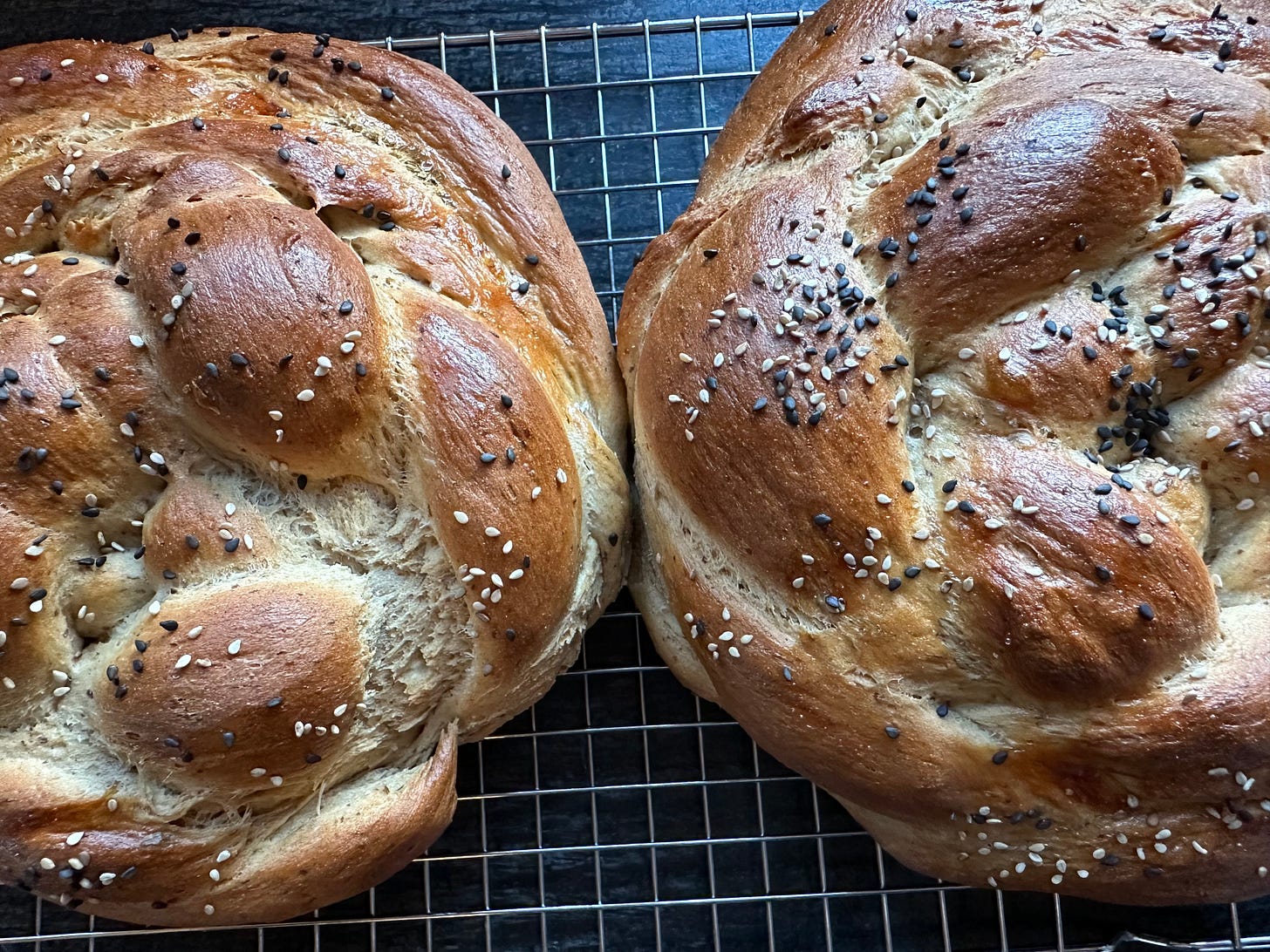Double Loaf
This week I’m doubling up on posts for “The Life of H: Sarah, Reimagined.” And I'm serving up reflections on hospitality and bread. (PLUS paid subscribers get a taste of my latest translations.)
Normally I alternate each week, posting on my This Dream is a Poem Substack one week, and here the next.
But I’m posting in The Life of H: Sarah, Reimagined two weeks in a row because we’re in the High Holidays Torah reading cycle, which is when Sarah, Abraham, and Hagar’s stories are highlighted.
So, this week I’ll be talking about
Why Sarah is regarded as the hostess with the most-ess, and what we can learn from her penchant for hospitality
Fun facts about Mesopotamian bread baking
And why it’s taking me so darn long to translate a handful of verses from biblical Hebrew to English.
PLUS as a bonus for Member Subscribers, I’m sharing a taste of my translation in progress …
Sarah the hostess
Sarah is held up, among other things, as a beacon of hospitality. I suppose that’s based on the scene in Genesis 18 when Sarah bakes loaves for three celestial strangers (Angels? God? Angels and God?) that she and Abraham welcome to their tent in Mamre.
Perhaps her act of hospitality is even more noteworthy as she and Abraham are strangers in a new land themselves.
At this moment in the story, Abraham enthusiastically greets the unknown, and unearthly visitors and offers them some bread to eat.
He then instructs Sarah to quickly bake the loaves from their finest flour.
Why is this wandering couple so quick to greet strangers with such a warm welcome?
Perhaps it is because the people of their homeland, in what is now southern Iraq, were renowned for their hospitality; a trait that Sarah and Abraham carried forward with them, along with their tents and belongings, as they traveled far from home on a spiritual quest.
The theme of hospitality continues in the next scene too, when after their time with Sarah and Abraham, the visitors move on to Sodom and Gomorrah where they have a very different experience. Despite the way the story of Sodom and Gomorrah has been used to cast judgement on homosexuality, the real sin here was the awful treatment of strangers.
And the moral of the story is …
Hospitality, one of the themes at the center of Sarah’s story, is a good word to reflect on anytime, but especially now.
I don’t have to remind you that we are living in a time of fear-mongering when “the stranger” and “the other” are vilified. So this story, though ancient, is a timely reminder to keep our hearts open, and give others the benefit of the doubt.
That said, I’ll admit that I wouldn’t be so quick to invite a total stranger into my home, let alone lay out a feast for them. But welcoming can take many forms. After all, Sarah and Abraham’s act of hospitality began when they saw the divinity in the strangers at their door.
That’s something we can all practice: Awakening to the divine spark, the beauty, and the good in people, places, and situations—even when (especially when) it’s not readily apparent.
Sarah and Abraham’s warm welcome is rewarded. As it turns out, these visitors had come to announce that the long promise of Sarah’s fertility would finally be fulfilled. And within the year Sarah, at last, bears a son.
May your acts of hospitality lead to the fulfillment of promises, too!
Speaking of bread
As you know by now, I’ve embarked on my own poetic translation of Sarah’s story. I started with Genesis 18.1 and I’ve only plowed through a handful of verses to date. (I’m half-way through my biblical Hebrew class, so I’m learning as I go.)
In the two verses I’m sharing today, bread is mentioned twice. And so, I took a deep dive into the ancient, yeasty, beginnings of one of my favorite foods.
Ray Bradbury wrote that nouns are the trapdoors to the subconscious. I think they are also trapdoors to the collective subconscious—
What follows is what I discovered when I opened the trap door and delved into two words for bread in the Bible. (Which might also explain why this process is taking me so darn long!):
Keep reading with a 7-day free trial
Subscribe to The Life of H to keep reading this post and get 7 days of free access to the full post archives.





